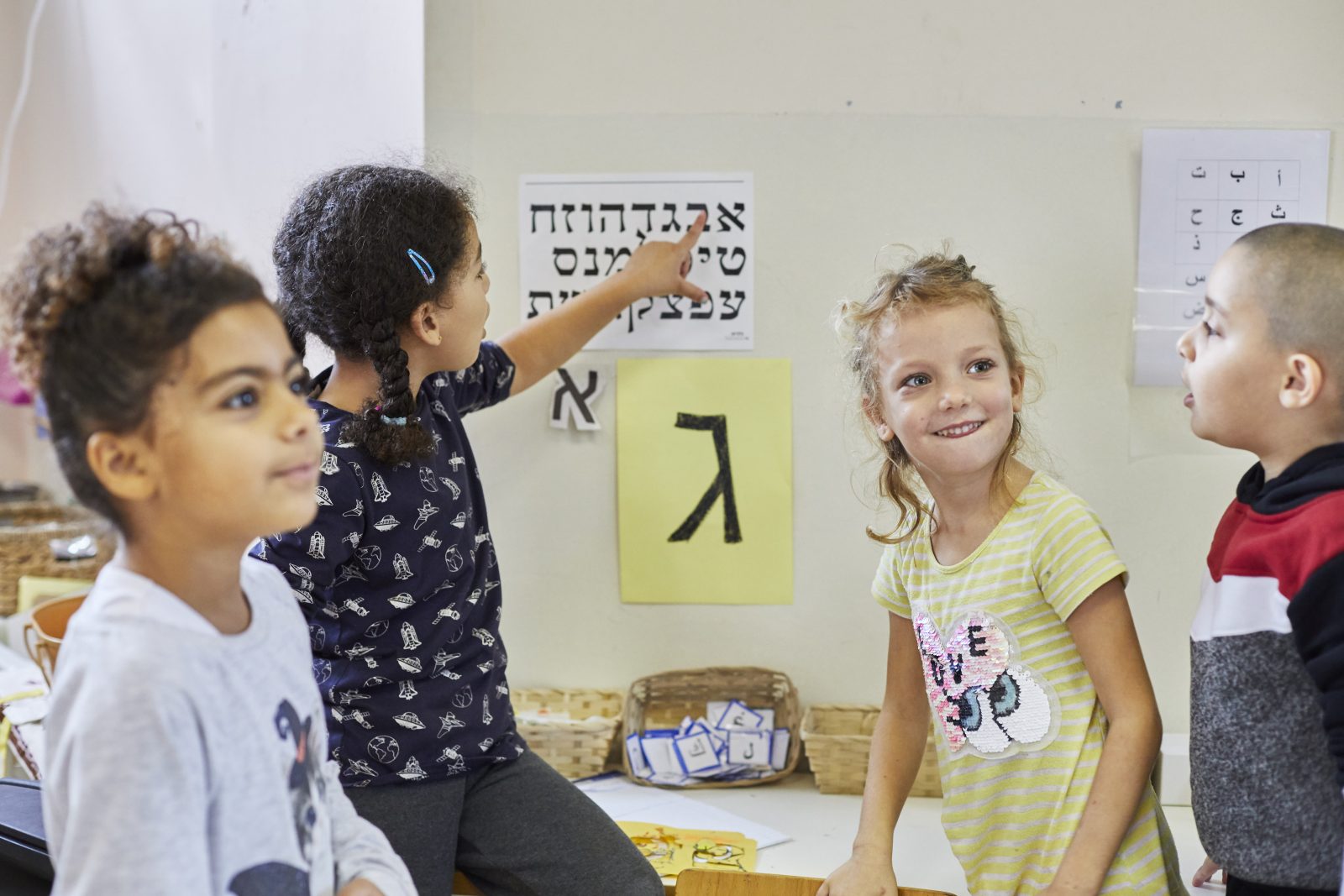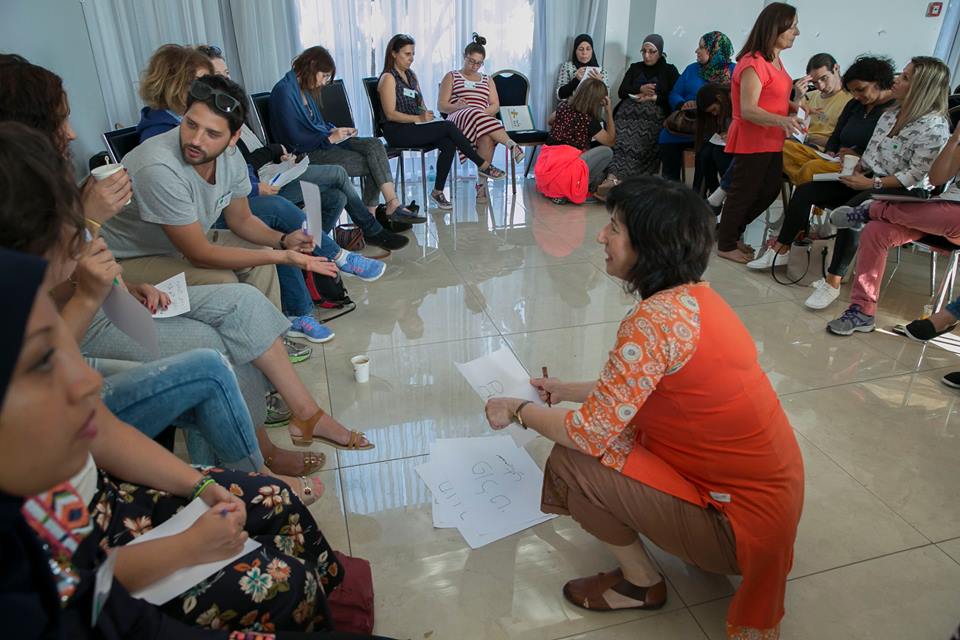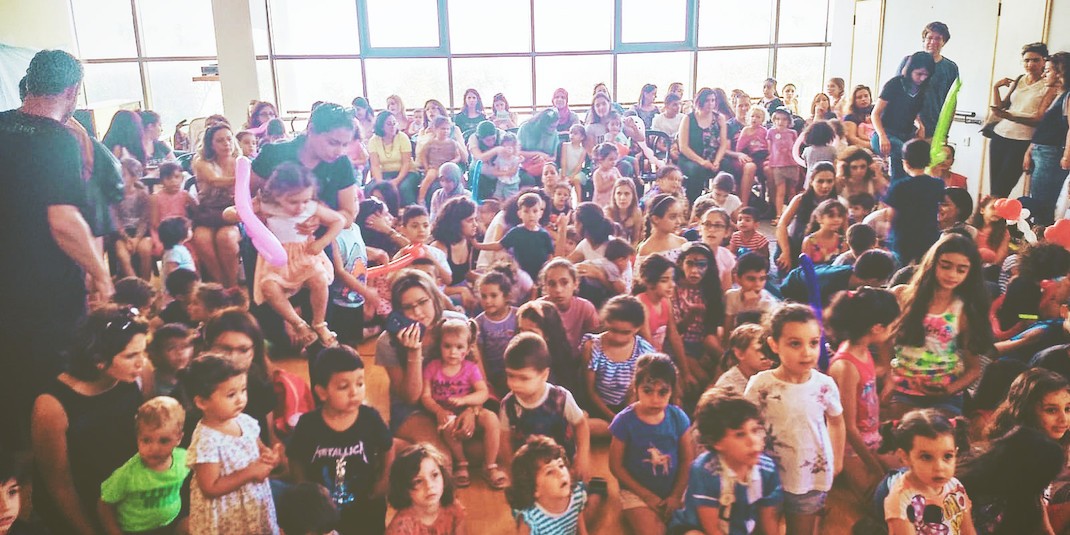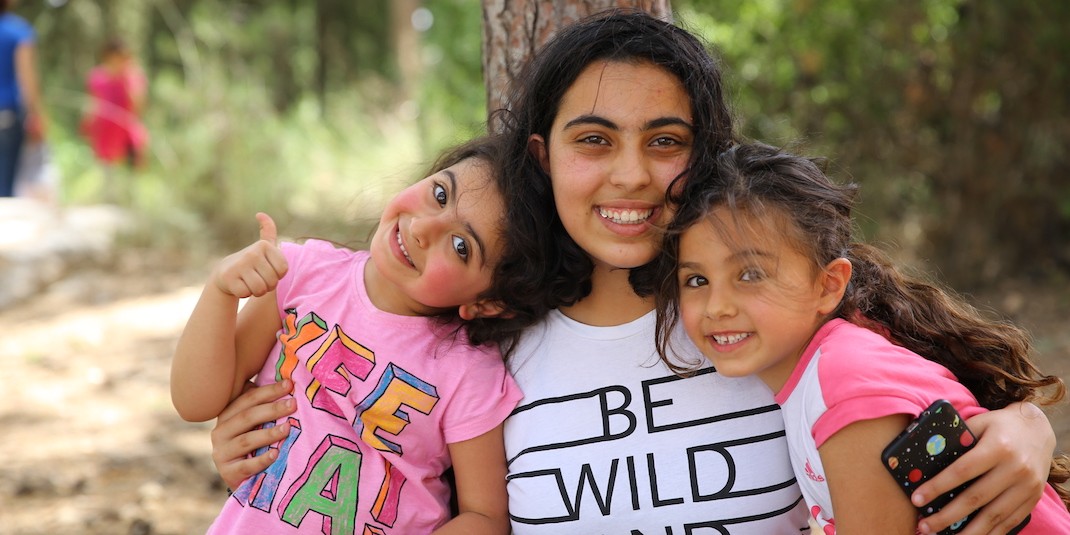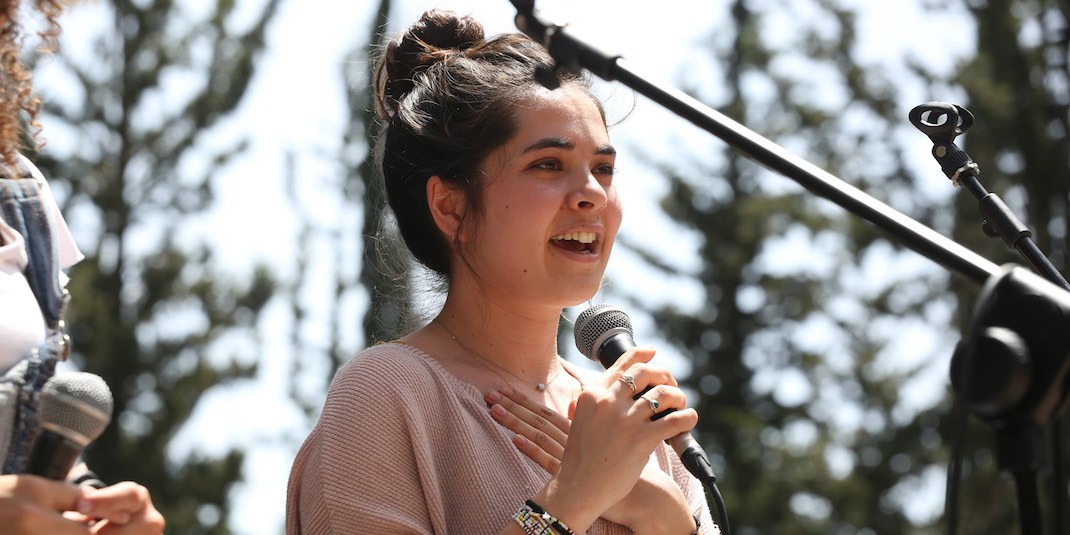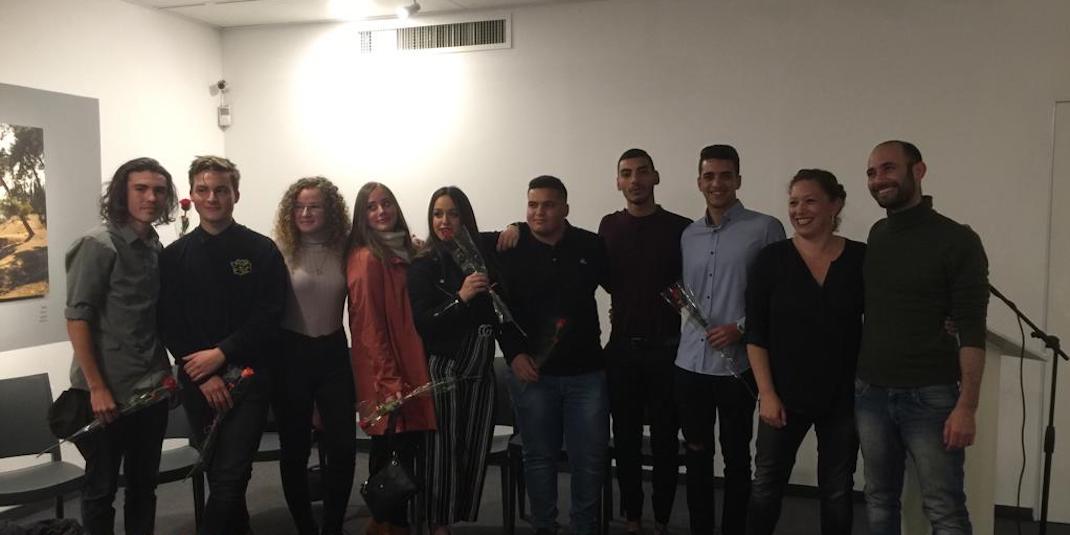Our Schools
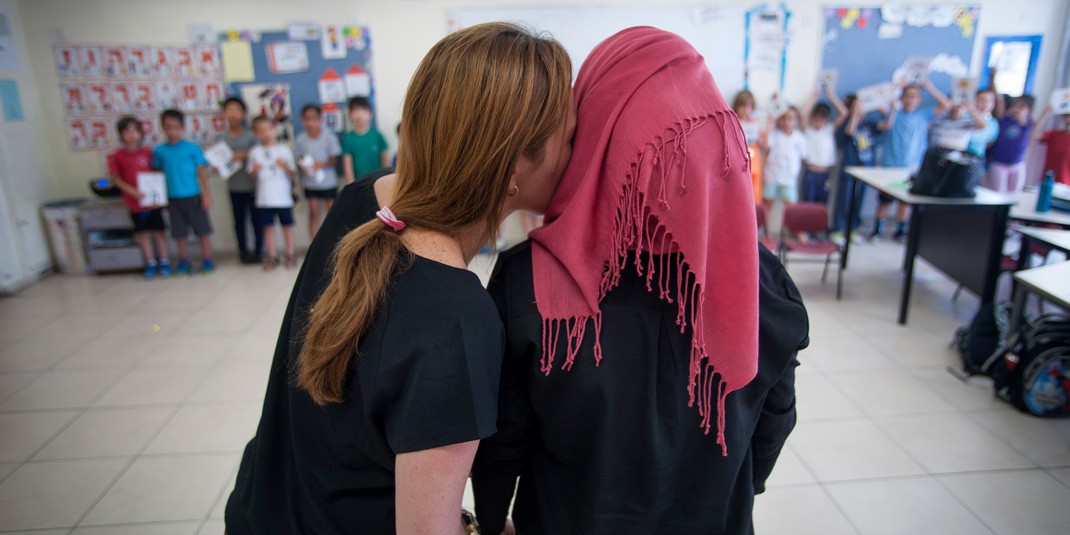
Hand in Hand’s growing network of integrated, bilingual, multicultural schools offer a transformational alternative to the status quo in Israel. Over 2,000 Jewish and Arab students, ages 3-18, study in our six schools across Israel. Our students study in both Hebrew and Arabic in a classroom taught by two teachers—one Arab, and one Jewish. They become acquainted with the culture, language, religion, and customs of all their peers. They acquire critical-thinking skills, and engage in dialogue, broaching even the most difficult topics. Below are some of the key components of our educational philosophy:
Bilingualism:
Starting in preschool, each of our classrooms is taught by two co-teachers—one Jewish and one Arab—who both teach in their mother tongue. Our students’ ability to speak the language of ‘the other’ is essential to engendering a sense of comfort among peers, in spite of cultural differences. It allows children to overcome their fear of ‘the other,’ and be open to friendship instead.
Multiculturalism and Identity Education:
Our schools follow a shared calendar, immersing students in stories, songs, symbols and traditions of Muslim, Jewish, and Christian holidays. We strengthen each student’s identity, helping them to feel pride and excitement in their heritage, while also communicating respect and knowledge about the other.
Values-Based Education:
Hand in Hand schools emphasize humanistic values including equality, human dignity, mutual respect, and empathy towards others. Our specially designed multicultural curricula in core subjects such as literature, history, civics, art, film, and religion, expose our students to multiple perspectives and teach them critical thinking skills. The educational messages about those who are different from oneself begin in preschool, and enable our students to become adults who view diversity not as a threat, but as an enriching experience.
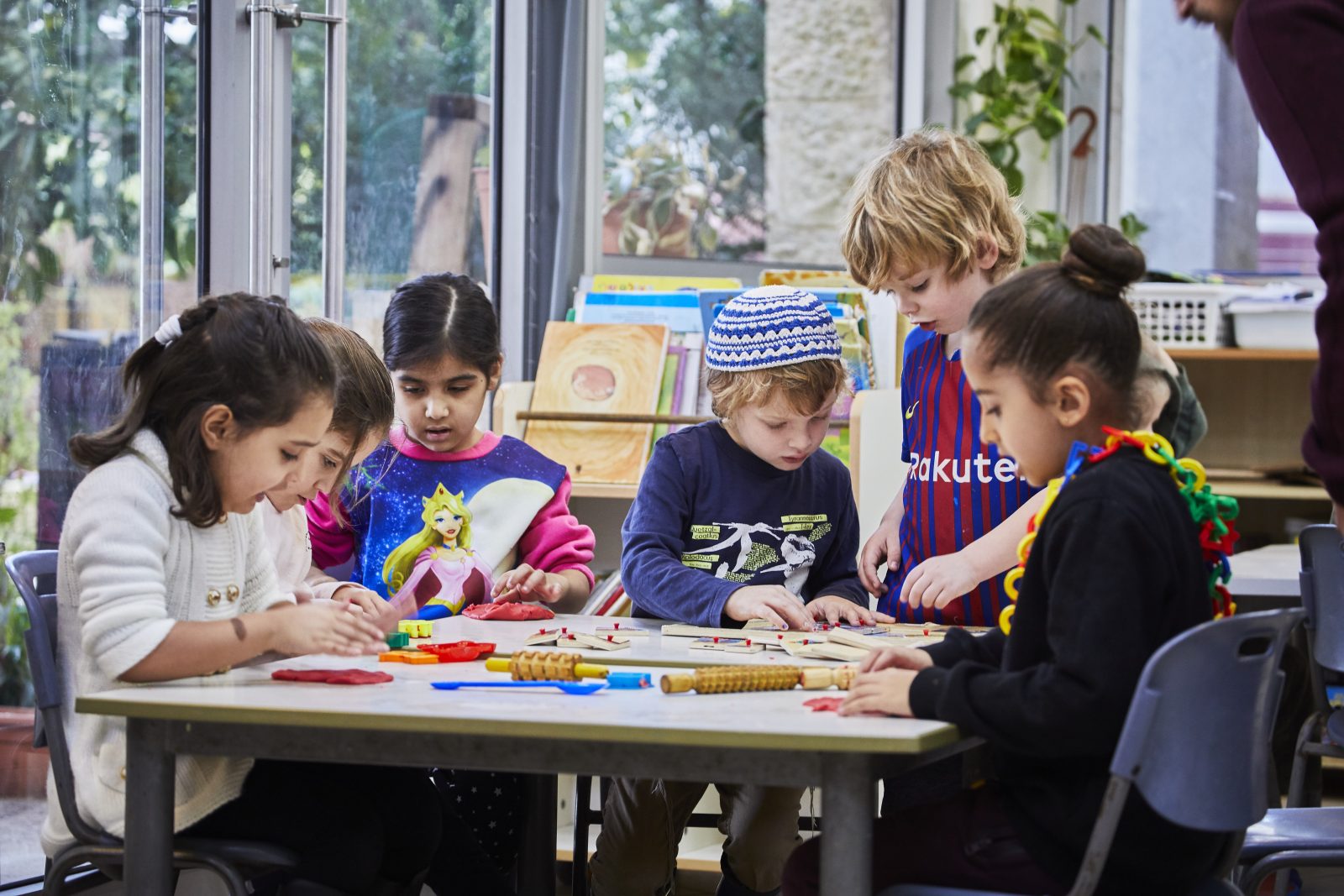
Teacher’s Training
The challenging social and pedagogical aspects of the bilingual and integrated experience at Hand in Hand schools require that each staff member receives pedagogic support, supervision, and training to effectively implement Hand in Hand’s bilingual and multicultural model. Read more about Hand in Hand’s innovative teacher training here.
Dialogue
Dialogue serves as a platform for strengthening feelings of partnership, trust, and solidarity not only between students and families, but among our staff as well. This is especially important for our Jewish and Arab teachers who must work together daily, even during times of ongoing violence and conflict. Read more about Hand in Hand’s dialogue groups here.
Resource Center
Hand in Hand is a leader and an expert in the field of bilingual, multicultural and values-based education. As such, we are committed to growing our Shared Society Educational Resource Center, through which we hope to share knowledge with local municipalities, government officials, and other educators in order to encourage system-wide change. Read more about Hand in Hand’s Educational Resource Center here.




